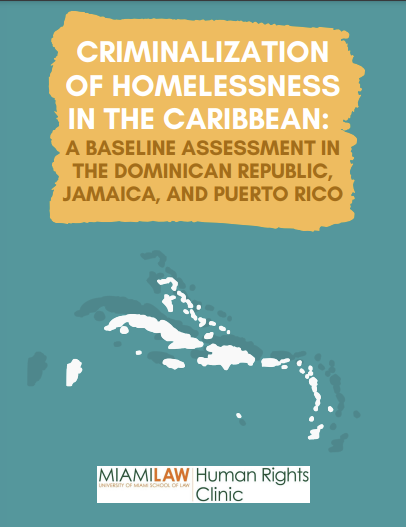Throughout the globe, governments use petty offenses, such as vagrancy and loitering laws, to exert social control over poor and marginalized communities. Moreover, people experiencing homelessness regularly face the threat of criminal sanctions for fulfilling basic needs. These petty offenses enable the policing of public spaces to reinforce social hierarchies and rigid gender norms. Many of these laws are in place in the Caribbean, inherited as part of the colonial legacy that permeates its systems today.
This report provides a baseline assessment of the criminalization of homelessness in the Dominican
Republic, Jamaica, and Puerto Rico. The analysis thus focuses on three Caribbean localities with diverse
histories connected to Spain, the United Kingdom, and the United States (U.S.). The report addresses both laws criminalizing vagrancy and loitering, as well as life-sustaining activities. It further examines the laws on the books, their implementation in practice, and their various impacts on people in each country.
This assessment benefits from both a literature review, as well as interviews with local experts and
collaboration with at the Ciudad Alternativa in the Dominican Republic, Stand Up for Jamaica, La Fondita
de Jesus in Puerto Rico, and the University of the West Indies’ Rights Advocacy Project.

